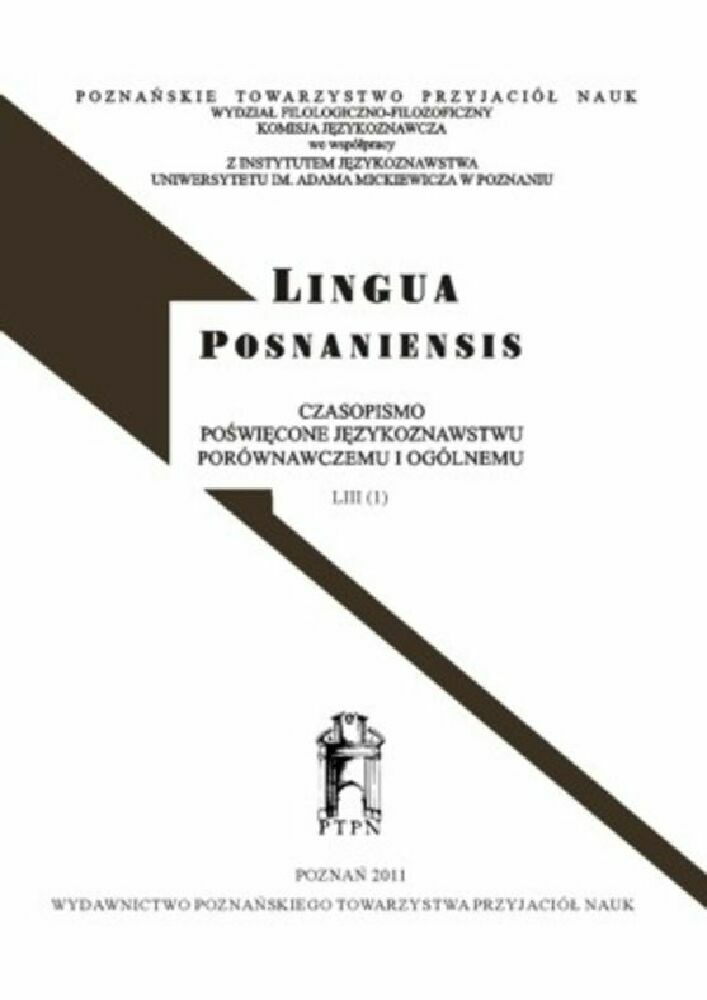Abstract
This study endeavors to undertake a comparative analysis of aspect in English and Moroccan Arabic, hereafter referred to as MA, adopting a cognitive linguistic approach, with special attention to the categorization of different situation types as proposed by Radden and Dirven (2007). It also aims to highlight the aspect areas that may challenge Moroccan EFL learners when acquiring this English grammatical construction. The study reveals that aspect is treated differently in English and MA. English aspect hinges on the viewing frame adopted. Therefore, the shift from one viewing frame to another results in the change from one situation type to another. By contrast, in MA, the perfective use calls for the adoption of a maximal viewing frame. However, the imperfective use calls for two interpretations: the event can be seen with either a maximal or a restricted viewing frame. In the absence of elements that co-determine the aspect in MA, general context is the only indication of the appropriate interpretation. The differences in the aspectual systems of English and MA may lead to difficulties in language acquisition. MA learners attempting to learn English, and vice versa, may face challenges in learning both the grammatical structure and its associated meanings.
References
Boogaart, Ronny & Janssen, Theo. 2007. Tense and aspect. In D. Geeraerts & H. Cuyckens (eds.), Oxford handbook of cognitive linguistics, 803-828. Oxford: Oxford University Press.
Comrie, Bernard. 1976. Aspect: An introduction to the study of verbal aspect and related problems. Cambridge: Cambridge University Press.
Croft, William. 1998. The structure of events and the structure of language. In Tomasello, Michael (ed.), The new psychology of language: Cognitive and functional approaches to language structure 1, 67-92. Mah-wah, N.J.: Lawrence Erlbaum. DOI: https://doi.org/10.4324/9781315085678-3
Crystal, David. 2008. A dictionary of linguistics and phonetics. Malden: Blackwell Publishing. DOI: https://doi.org/10.1002/9781444302776
Cutrer, L. Michelle. 1994. Time and tense in narrative and in everyday language. San Diego: University of California. (Doctoral dissertation.)
Evans, Vyvyan & Green, Melanie. 2006. Cognitive linguistics: An introduction. Edinburgh: Edinburgh Univer-sity Press.
Harrell, Richard S. 1962. A short reference grammar of Moroccan Arabic. Washington, D.C: Georgetown University Press.
Harrell, Richard S. & Sobleman, Harvey. 2004. A dictionary of Moroccan Arabic. Washington, D.C: Georgetown University Press.
Hopper, Paul J. 1982. Aspect between discourse and grammar: An introductory essay for the volume. In Paul Hopper (ed.), Tense-aspect between semantics and pragmatics, 3-18. Amsterdam: John Benjamins. DOI: https://doi.org/10.1075/tsl.1.04hop
Landman, Fred. 1992. The progressive. Natural Language Semantics 1(1), 1-32. DOI: https://doi.org/10.1007/BF02342615
Langacker, Ronald W. 1999. Grammar and conceptualization. Berlin: Mouton de Gruyter. DOI: https://doi.org/10.1515/9783110800524
Larsen-Freeman, Diane & Celce-Murcia, Marianne. 2015. The grammar book: Form, meaning, and use for English language teachers. Boston: National Geographic Learning.
Michaelis, Laura A. 1998. Aspectual grammar and past time reference. London: Routledge.
Radden, Günter & Dirven, René. 2007. Cognitive grammar: A basic introduction. Oxford: Oxford University Press.
Rothstein, Susan. 2004. Structuring events: A study in the semantics of lexical aspect. Blackwell: Oxford. DOI: https://doi.org/10.1002/9780470759127
Vendler, Zeno. 1967. Linguistics in philosophy. Ithaca, NY: Cornell University Press. DOI: https://doi.org/10.7591/9781501743726
License
Copyright (c) 2023 Abdelhakim Boubekri, Ahmed Ech-Charfi

This work is licensed under a Creative Commons Attribution-NonCommercial-NoDerivatives 4.0 International License.

